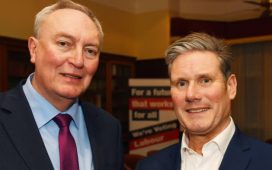Rishi Sunak will unleash the largest rise in public borrowing in 30 years when he delivers his first Budget on Wednesday, signalling a decisive end to austerity as he pours money into long-term investments.
The chancellor will also turn the spending taps on in the short term to help the NHS, companies and individuals cope with the outbreak of the coronavirus, further increasing the UK government deficit.
Mr Sunak’s proposed increases in day-to-day public spending and infrastructure projects over the next five years will mostly be funded by borrowing — jeopardising the government’s ability to meet fiscal rules it set only four months ago.
In a signal that the landscape has dramatically shifted since the election, the chancellor is poised to announce a review of the UK’s economic framework, intended to give the green light to significantly higher deficits.
Under Mr Sunak, the Treasury is no longer focused on cutting public debt levels, with ministers now “at the forefront of international thinking” on public finances, according to people close to the situation.
The fiscal loosening will increase public borrowing by more over the next five years than any chancellor has done since Norman Lamont in the pre-election giveaway Budget of 1992. It will be bigger than Gordon Brown’s 2000 Budget, when he raised health spending after the 1990s experience of austerity, and Alistair Darling’s fiscal stimulus statement of 2008 that was a large but only temporary giveaway.
Mr Sunak will deliver his first Budget under the shadow of the coronavirus outbreak; his allies admit that his statement will be judged on whether it helps to stave off serious economic disruption and individual hardship.
Leading banks on Tuesday announced “mortgage holidays” to help people affected by the virus, while Mr Sunak is working with banks and tax authorities to help companies through cash flow problems caused by the outbreak.
However, he also wants to deliver flagship manifesto promises, such as cutting the national insurance bill for millions of workers and allocating more government money for investment.
The 39-year-old chancellor said it was an opportunity to increase public investment on infrastructure and innovation to the highest level since the 1950s — funding roads, railways, broadband, housing and research.
Mr Sunak claimed that, by the end of this parliament, Britain would be spending three times more per year in net investment than the average for the past 40 years. This would allow him to “level up” economic opportunity across the country.
Projects including the upgrading of the A1 from Northumberland to Edinburgh, which would not normally have met Treasury “value for money” tests, will receive funding under revised cost/benefit rules.
“By investing historic amounts in British innovation and world-class infrastructure, we will rebalance opportunities and lay the foundations for a decade of growth for everybody,” Mr Sunak said on the eve of his Budget.
But Mr Sunak’s long-term vision could be obscured by concerns about the short-term prospects for the economy, as the Treasury works with the Bank of England and high-street lenders to tackle the immediate crisis.
Royal Bank of Scotland said it would allow borrowers to defer mortgage and loan repayments for up to three months, a policy that it offers customers who have been hit by crisis events such as flooding. Other banks are expected to take similar action in the coming days.
Mr Sunak is also expected to announce plans to allow companies to defer tax payments, while business groups say they are hoping that a “hardship fund” will be set up to help viable companies exposed to the crisis.
In recent days, Mark Carney and Andrew Bailey, the outgoing and incoming Bank of England governors, have hinted that the central bank is ready to join in with supporting companies and households.
The main tool will be giving incentives to banks to extend loans and defer interest payments for borrowers who have temporary payment difficulties, ensuring they act as a “bridge” to a calmer period when the coronavirus outbreak subsides.
But in financial markets, expectations were mounting that the central bank would go further on Wednesday. Allan Monks, UK economist at JPMorgan, said: “We would be surprised if we didn’t have some announcement about BoE measures tomorrow, potentially including an early rate cut.”
Meanwhile, Mr Sunak is expected to announce the biggest deal yet to devolve power to the regions: with agreement to hand over at least £30m a year to a new combined West Yorkshire authority based in Leeds, covering 3.2m people.
The region, which will elect a metro mayor and gain powers over transport, skills and housing, is larger than Greater Manchester and the West Midlands, which first elected mayors four years ago.
Additional reporting by Andrew Bounds














